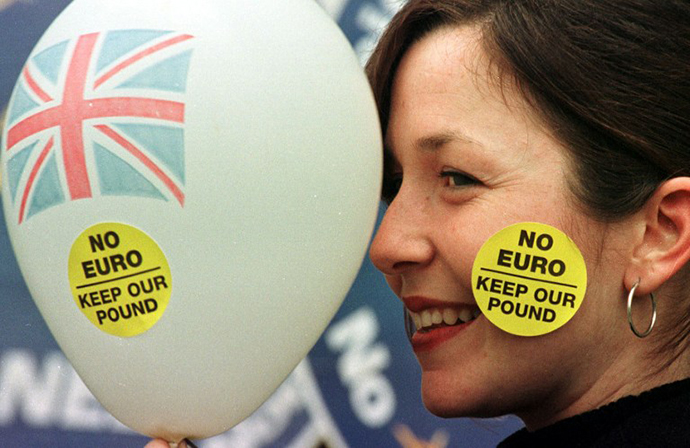British business says 'Brexit' will cost UK $140bn annually
As the question of the UK's EU membership has taken the center stage of British politics, some of the UK's leading business heavyweights argue that political interests should not be placed before the economics.
Some of the UK’s leading business heavyweights including Sir Richard Branson and Sir Martin Sorrell as well as the current and next presidents of the Confederation of British Industry and the chairmen of BT, Deloitte, Lloyds and Centrica argue that exiting the EU could cost the British economy up to £92bn (almost $140 billion) a year, The Independent newspaper reports.
A number of UK's most successful and eminent business figures have signed a letter to The Independent where they slam Eurosceptics for ignoring the national interest in their call for the UK to leave the European Union. It is the first coordinated response from the business community to the anti-EU rhetoric.
The businessmen call for PM David Cameron to “strengthen and
deepen” the European single market to drag an extra £110 billion
($167 billion) to the British economy.
Not everyone, however, agrees that remaining in the EU is
critical to the health of the British economy.
Mark Pritchard, a politician with the Conservative Party and a
Member of Parliament,
argues that the EU would not terminate relations with Britain in
the case the British people vote to leave the European
Union.
"I don’t accept the view that somehow trade barriers would go
up and tariffs would be introduced by continental Europe,"
Pritchard told RT in an interview. "It’s not in their interest.
They export more to the United Kingdom than we export to the
European Union."
Meanwhile, opinion polls in the country reveal that exiting the EU is the most likely scenario. Anti-EU sentiment in Britain has been growing since 2007, when almost half the UK population didn't trust the European bloc. A similar survey undertaken last year revealed that 69 percent of those who took part were euro-sceptic.

A draft bill on an in-out referendum has been proposed by the ruling Conservative party, saying it must be held before the end of 2017. According to The Independent, two cabinet ministers have already declared that they would vote to leave the EU if the referendum were held today. The newspaper also says that some senior Tories are quite certain a new EU membership deal for Britain that eurosceptics would support is hardly an option for Cameron.
The businessmen in their letter refer to the economics, saying that exiting the EU would bring nothing but losses to the UK economy.
“The economic case to stay in the EU is overwhelming,” the business leaders state in the letter to the The Independent. “To Britain, membership is estimated to be worth between £31 billion ($47 billion) and £92 billion ($139 billion) per year in income gains, or between £1,200 to £3,500 for every household.”
“What we should now be doing is fighting hard to deliver a more competitive Europe, to combat the criticism of those that champion our departure. We should push to strengthen and deepen the Single Market to include digital, energy, transport and telecoms, which could boost Britain’s GDP by £110 billion ($167 billion) ,” they add.












